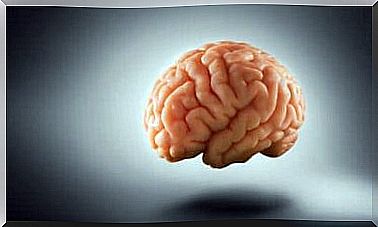The Illusion Of Truth: To Believe That Something Is True When It Is Not

The illusion of truth is a mechanism by which one begins to believe that something is true, when it is not. It’s not only that they do not believe it, they also defend it as if it is true. They also close themselves off from the possibility that it is not right.
The illusion of truth, also called the illusory truth effect , arises because there is an error in the processing of truth. As humans, we tend to say that known things are true.
In 1977, a study was done on it. A group of volunteers was presented with 60 statements. The researchers asked them to answer whether they were right or wrong. The same exercise was repeated later. The researchers then discovered that these people considered the statements they had read before to be correct, no matter how likely they were.
The illusion of truth and implied memory
It seems that this mechanism works due to ” assumed memory”. In the previous experiment, participants considered statements they had seen before to be correct – even though they had been clearly told that these were incorrect. Simply put, if the statements felt “familiar”, they also seemed true.

Illusory truth occurs without involving detailed and conscious memory. It is a direct result of an assumed memory, a type of memory that uses past experiences to perform tasks. This is a strategy the brain uses to save energy.
An assumed memory is presented, for example, when you tie the shoelaces. First, you learn to do it. Later, you perform the task mechanically, automatically. If you are going to tie something other than shoelaces, you will most likely use the same technique, even if it is not the best for the job. In other words, you tend to create models and then use them in different situations.
This mental strategy is also applied to more abstract realities, such as ideas. This leads to the illusory effect of truth. This means that you most likely believe in ideas or a way of thinking if it seems familiar and coincides with previous experiences. Herein lies the danger of making choices, based on bad advice.
The illusion of truth and manipulation
The illusion of truth has many problematic effects. As the old Nazi saying goes, ” If you repeat a lie often enough, it will come true.” A statement that is repeated even if it is incorrect tends to be considered true. Most people do not have enough interest or resources to verify whether something is true or not.

In fact, the illusory truth effect is a shortcut the brain takes, to avoid spending more effort than necessary. If we examined everything we said and did, we would be exhausted within an hour.
Why is it better to be awake during the day instead of at night? Should we have breakfast or nothing at the beginning of the day? What do we eat for breakfast, is it good, or do we eat it just out of habit?
It is impossible to evaluate everything to find the truth. This is why the human brain helps us and simply organizes information based on what you have learned. It is a strategy to help you in life.
The illusion of truth does not cancel out logic
An important aspect of the illusory truth effect is that no matter how strong it is, it does not cancel out logical reasoning. This means that you can always make mental processes that will help you understand right and wrong.
It also means that the power of manipulation over the mind is limited. It only catches you in an illusion when you decide not to use your best reasoning skills. If you decide to use them, the effect will be less.

As you can see, it will be interesting to ask questions about the most important aspects of reality. You should ask yourself why you think the way you do. Do you think that something is true just because you have heard it many times? Or is it true because you have enough evidence to believe it?









